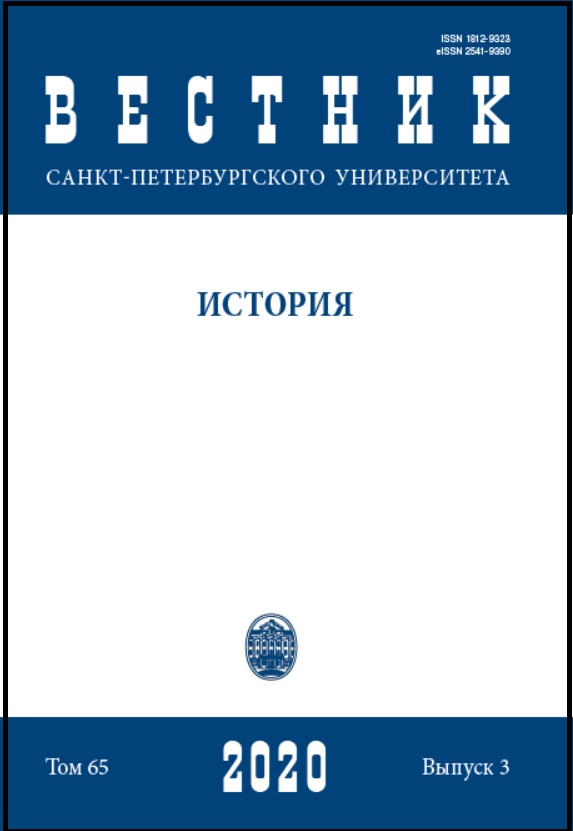The transformation of imperial politics in Poland from constitutionalism to bureaucratic centralization
DOI:
https://doi.org/10.21638/11701/spbu02.2020.303Abstract
For the first time in historiography, the article discusses the basic principles of the formation of the Council of State during the reign of Nicholas I in the context of representatives of the Kingdom of Poland. The article demonstrated that the problem of organizing the management of a huge country at the beginning of the Nikolaev era was one of the main. The extraordinary circumstances of the accession to the throne, that is, the dynastic and political crises, and then the revolutionary upheavals in Europe, had a decisive influence on the choice by Nicholas I of strategic priorities and tactical attitudes of state policy. A tactical means of achieving it was a new type of absolutism, combining the monarch’s strong authoritarian power with an improved management system, one of the most important components of which was determined by the “national” administration of Poland. At the same time, the “information war” unfolding in connection with European revolutionary events forced the supreme power to pay special attention to it, both ideological and institutional convergence with the political system of Russia. In the conditions of the destruction of the system of relations with Poland that existed until 1830, the government’s priority was to develop a new domestic policy that would ensure the imperial center maintain social peace in the region by not only establishing a single legislative space, but also incorporating the Polish administrative and military elite into the highest state institutions of the country.
Keywords:
Russian Empire, Kingdom of Poland, Polish Uprising, Nicholas I, Department of Affairs for the Kingdom of Poland of State Council, K. F. Drutsky-Lyubetsky, V. I. Krasinsky, S. F. Grabovsky, S. A. Zamoysky, A. A Rozhnetsky, I. L. Turkul
Downloads
Downloads
Published
How to Cite
Issue
Section
License
Articles of "Vestnik of Saint Petersburg University. History" are open access distributed under the terms of the License Agreement with Saint Petersburg State University, which permits to the authors unrestricted distribution and self-archiving free of charge.





